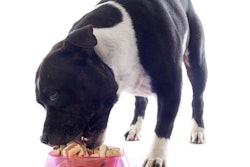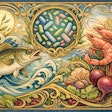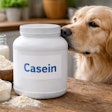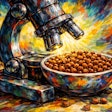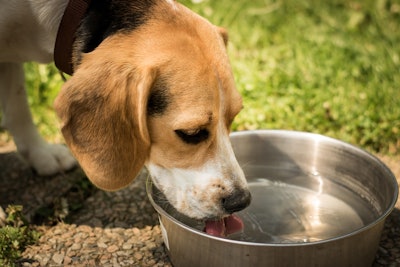
The Farmer's Dog announced research showing that fresh diets help dogs stay more hydrated than traditional dry food. The company said the findings are among the first to directly measure total water intake in dogs across different diets.
"Throughout their evolution, dogs ate moisture-rich whole foods," said Jonathan Regev, co-founder and CEO of The Farmer's Dog."The shift to dry diets is relatively recent."
Study measures total water intake
The company conducted two hydration studies to evaluate how diet impacts total daily water intake in dogs, measuring not just how much dogs drink but also how the moisture in their food contributes to overall hydration.
Both studies used a 14-day crossover design with 10 adult dogs and compared one of The Farmer's Dog's fresh recipes to a dry kibble diet. Diets were analyzed by a third-party laboratory for moisture content, and researchers tracked daily food and water intake along with weekly body weight to assess hydration outcomes.
Dogs fed The Farmer's Dog's fresh food consumed significantly more total water daily (522.5g) compared to dogs fed dry kibble (434.1g), even though dry kibble-fed dogs drank more water. Dogs consuming the fresh food drank less from their water bowls, suggesting they were meeting most of their hydration needs through food. On average, dogs eating The Farmer's Dog exceeded their daily water requirement by 40%.
Urinary health benefits
Researchers also published results from an existing urinary relative supersaturation study in dogs fed one of The Farmer's Dog's recipes. RSS studies help evaluate the risk of urinary stone formation in healthy dogs by analyzing if values fall into desired zones. The study showed RSS values consistent with the targeted undersaturated zone for struvite stones. Calcium oxalate stone formation was in the lower end of the targeted metastable zone.
"Veterinarians often advise owners to increase their dog's water intake — especially for dogs prone to dehydration or urinary health issues — but many dogs simply won't drink more, even with added water or flavor enhancers," said Dr. Joseph Wakshlag, DVM, PhD, DACVIM (Nutrition), ACVSMR, one of the board-certified veterinary nutritionists who was involved in the study.
"We wanted to understand if the food itself could play a meaningful role in helping dogs stay hydrated, without the extra steps, and it did," he continued. "These are the first ever datasets we have that quantify the total water intake from fresh food — which is important research to better understand fresh feeding and its implications on health and well being. The results confirm what many of us in the veterinary community have long suspected: moisture in food directly impacts overall daily hydration in dogs."
The research was published in Frontiers in Veterinary Science.


